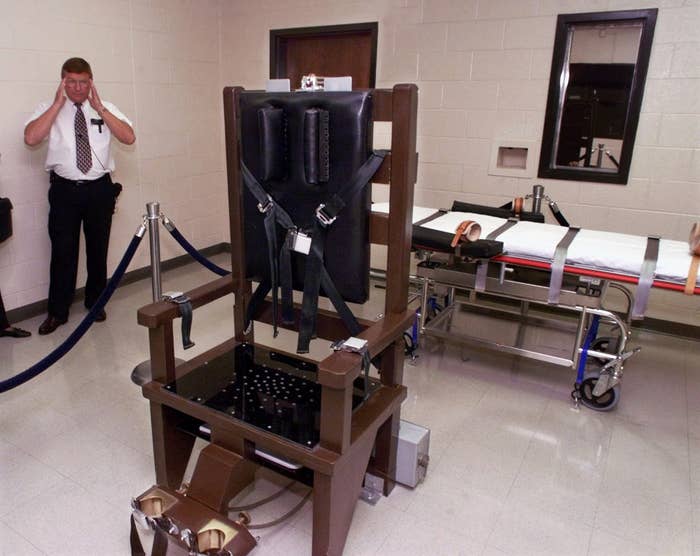
Can death-row inmates challenge the constitutionality of electrocution?
The Tennessee Supreme Court will soon decide. Death penalty states once phased out the electric chair in favor of drugs — for humane reasons. Now that drugs have become hard to obtain, states like Tennessee have turned to older execution methods like the chair as a backup.
On Wednesday, the state court will weigh whether death-row inmates can challenge the method's constitutionality. Thirty-four inmates allege electrocution is a violation of the Eighth Amendment's ban on cruel and unusual punishment — that the electric chair disfigures the body and is an affront to evolving standards of decency.
But Tennessee has pushed to have the lawsuit dismissed, arguing that the inmates can't challenge the method because none of them are actually scheduled to face electrocution.
Tennessee's preferred method is lethal injection, using pentobarbital made from a secret compounding pharmacy. Lawmakers passed a law last year that makes electrocution the contingency plan if either drug makers or the courts make lethal injection impossible.
"The[y] are asking the court in this case to… consider hypothetical situations involving uncertain or contingent future events that may or may not occur as anticipated or, indeed, may not occur at all," Attorney General Herbert Slatery's office wrote.
"None of the contingencies necessary to trigger [the electric chair] has occurred, and they may not ever occur."
The inmates' attorneys counter that the state could switch to the electric chair with little to no notice. And as drug makers introduce more stringent restrictions to keep their products out of the hands of death-penalty states, the possibility of not being able to obtain lethal drugs increases.
Attorney Kelley Henry also points to the scenario in Georgia, where the state had to call off an execution when they discovered their compounded drug was "cloudy."
"Had [the Georgia inmate] been in Tennessee's execution chamber… she would have been shuttled to the electric chair while her attorneys made a mad scramble to get the attention of the court, presuming the state were to give notice to the condemned inmate's attorneys -- something [the state]'s remarks indicate they would be under no obligation to do," Henry wrote.
A lower court sided with the inmates.
"Although hypothetical to some degree, execution by electrocution is possible in this setting. This court must respect the assumption that the use of electrocution for execution… is a real issue and that its use could occur without any review of testing of the method, and without warning," Judge Claudia Bonnyman wrote.
Alabama, Arkansas, Florida, Kentucky, Oklahoma, South Carolina and Virginia all allow electrocution, but only if the inmate requests it or if lethal injection is found unconstitutional.
The electric chair has been used 14 times since 2000, most recently by Virginia in 2013. Tennessee has not used the method since 2007.
